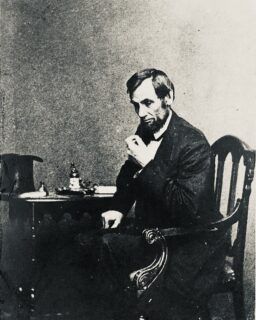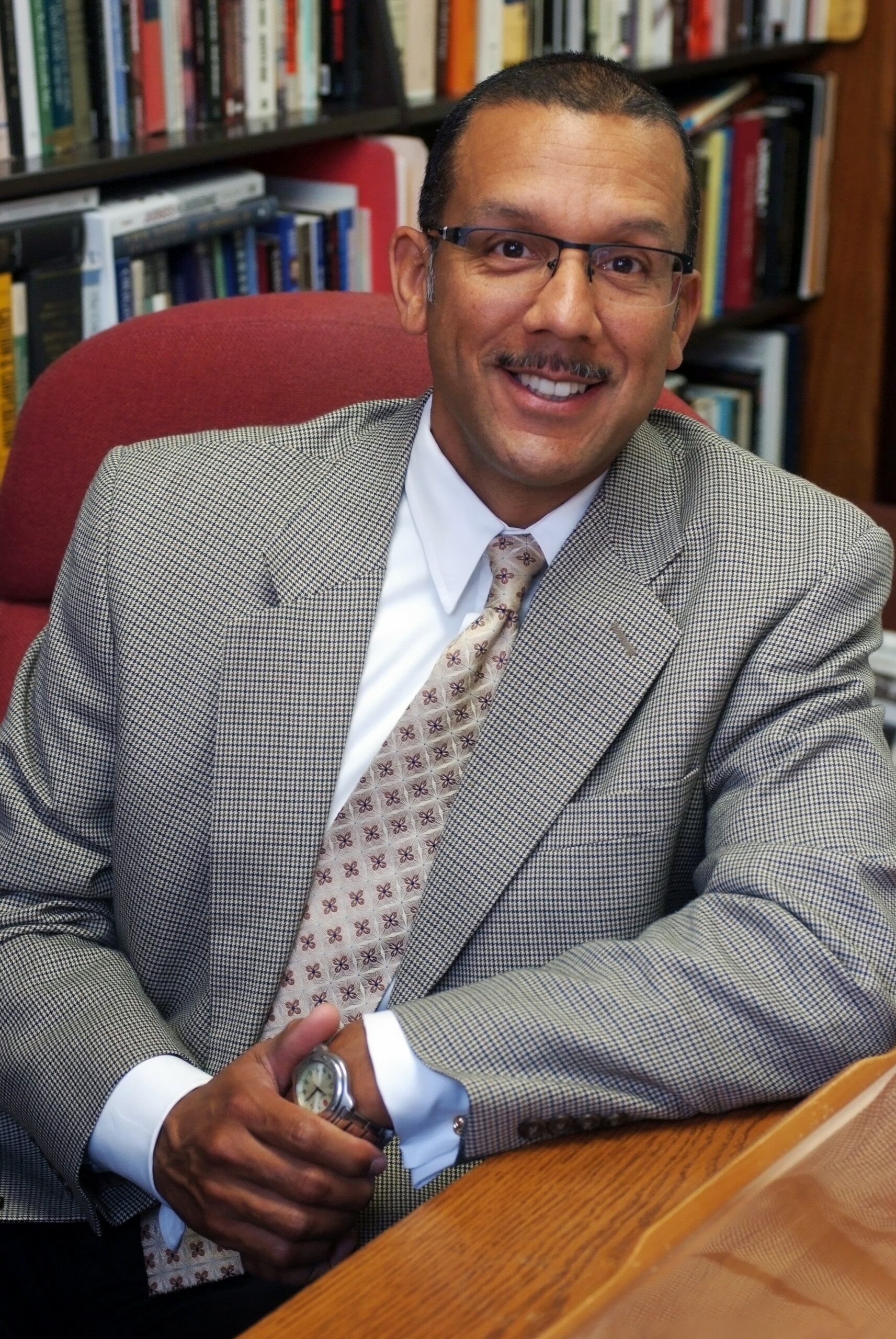
Fragment on the Constitution and Union

By: Lucas E. Morel
After his election to the presidency in November of 1860, Abraham Lincoln received a letter from Alexander H. Stephens, the future Vice President of the Confederacy. They were fellow Whigs when Lincoln served in the House of Representatives from 1847 to 1849. Writing after South Carolina claimed to have seceded from the United States on December 20th, Stephens asked Lincoln on December 30th to do what he could “to save our common country.” Quoting Proverbs 25:11, Stephens suggested to Lincoln, “A word fitly spoken by you now would be like ‘apples of gold in pictures of silver.’”i
Lincoln, however, thought that any statement issued as president-elect would simply be misconstrued by his enemies and exacerbate the national crisis. He, therefore, had decided not to give any speech clarifying his positions on slavery, secession, or the fugitive slave law before his March 4th inauguration.ii Reflecting upon Stephens’s biblical allusion prompted Lincoln to jot a note to himself that explained what the nation needed was not new words from its new president but old words from men of old, the words of the Declaration of Independence. In short, the “word fitly spoken” had already been uttered, or at least written: “We hold these truths to be self-evident, that all men are created equal, that they are endowed by their Creator with certain inalienable rights, that among these are life, liberty, and the pursuit of happiness.”
Lincoln had read a newspaper account of Stephens’s speech to the Georgia legislature arguing against secession. In that November 14, 1860, speech, Stephens highlighted Georgia’s “unrivalled prosperity in the Union” as a reason to stay in the Union. Given their significant exports of cotton, he pointed to the state’s “foreign trade” as “the foundation of all our prosperity,” which owed its increase to “the protection of the navy.” In sum, Stephens thought “such rapid progress in the development of wealth, and all the material resources of national power and greatness, as the Southern States have under the general government,” they owed to the American union.iii But where Stephens highlighted the constitutional union as the sine qua non of American prosperity, Lincoln credited a higher cause.
In the note to himself, Lincoln acknowledged, “Without the Constitution and the Union, we could not have attained the result,” but added that “even these, are not the primary cause of our great prosperity.”iv He attributed America’s success not to a governmental system but to “a philosophical cause,” an idea “entwining itself more closely about the human heart.” Lincoln thought the Constitution and union existed for the sake of something higher, what he called “the principle of ‘Liberty to all.’” That principle summarized the noble ideals of the Declaration, a principle he clarified for himself at a time when the nation was perilously divided over the meaning of both the Declaration of Independence and the Constitution.
Lincoln saw the union of American states and the Constitution as the setting or “picture of silver” created to secure the equal rights—the “apple of gold”—that all men and women possessed by nature. However, some Americans had lost sight of this. Having postponed the abolition of black slavery for so long, some had come to believe that liberty belonged only to white people. This disagreement over the purpose of the American union and Constitution led to the electoral crisis of 1860.
For South Carolina and eventually the other ten slaveholding states that seceded, equality and the Constitution had a meaning that would be undermined by Lincoln’s presidency and the growing Republican representation in Congress. Equality did not refer to the equal humanity of all people but to “the equal rights of the states” under a federal constitution understood as a compact among “free, sovereign and independent states.”v Seceding states claimed that denying their citizens the right to take enslaved people to federal territories, as they feared the incoming Republican administration would do, would “deprive us of an equal enjoyment of the common Territories of the republic.”vi
In his fragment, Lincoln observed, “No oppressed, people will fight, and endure, as our fathers did, without the promise of something better, than a mere change of masters.” If liberty belonged to all by nature, then those possessing that liberty had every incentive to erect a government to protect the liberty of each member of the community. It was that principle, Lincoln observed, “that clears the path for all—gives hope to all—and by consequence, enterprize, and industry to all.” Lincoln believed the “expression of that principle, in our Declaration of Independence” was “most happy and fortunate” precisely because it gave incentive to Americans to fight to establish “free government” and their “consequent prosperity.”vii
Lincoln hoped “that neither picture, or apple shall ever be . . . broken.”viii By this he meant actions like South Carolina’s “to dissolve the union between the State of South Carolina and other states united with her under the compact entitled, ‘The Constitution of the United States of America.’”ix South Carolina thought it could leave the Union if the Constitution no longer served the purposes for which they thought it was established. The state’s December 20, 1860, secession ordinance therefore repealed its original ratification of the Constitution and declared that its union with the other American states was “hereby dissolved.”
Lincoln, on the other hand, believed the federal constitution was a real government, not a mere compact or league of sovereign states that endured only by the good faith of each state. South Carolina had broken the “picture of silver” by rejecting the outcome of a constitutional election and insisting their citizens were no longer obligated to obey the federal government. Most importantly, South Carolina “bruised” the apple by maintaining that enslavement of black people violated no moral law. Without a return to the Founders’ efforts to put slavery “in the course of ultimate extinction,” Lincoln thought the American union would not be “worthy of the saving.”x
But as bad as the southern interpretation of the Declaration and Constitution was, Lincoln thought a more pressing danger lurked in a policy promoted by his Illinois rival, Senator Stephen A. Douglas—namely, the policy of popular sovereignty. To Douglas, the summum bonum of America was not the equal rights of every human being—“Liberty to all”—but merely the local expression of the will of white people. He argued that the enslavement of black people should be decided by the local white populations of territories or states, not by Congress, and steadfastly maintained a neutral stance towards the morality of slavery. The consent principle of the Declaration—which Douglas affirmed as “a sacred right of suffrage” and “that great principle of self-government”—was thereby neutered as a moral expression of the liberty belonging to every human being.xi
Lincoln thought this understanding of the federal government divorced the connection between the Declaration of Independence and the Constitution. It “blurred” or “bruised” the apple of gold by viewing the Constitution simply as a mechanism for uniting diverse American states but without a clear vision of “the blessings of liberty” to which that “more perfect union” was devoted.[xii] As he stated in his 1854 Peoria Address, it would be “sad evidence that, feeling prosperity we forget right—that liberty, as a principle, we have ceased to revere.”xiii
Lincoln therefore argued that the most urgent need was not to refute slave-owning southerners but to thwart Douglas’s efforts to get white northerners not to care about the expansion of slavery in the federal territories. “I said that this insidious Douglas popular sovereignty is the measure that now threatens the purpose of the Republican Party, to prevent slavery from being nationalized in the United States.”xiv The insidious aspect of Douglas’s rhetoric owed to his repeated claim of indifference toward the spread of racial slavery. This meant that slavery’s expansion would not require a positive argument. Simply persuade white Northerners not to care what happens to black people in the federal territories, and slavery would spread as far as self-interest could carry it.
Lincoln believed that if northerners accepted Douglas’s popular sovereignty, it would not be long before politicians argued for the repeal of the ban on the importation of slaves, there being no principled difference between allowing slavery to enter federal territory and permitting their purchase where they could be bought the cheapest—overseas. It would require only a simple change in law to relaunch the nation in the international slave trade. Lincoln called attention to this corrupting influence of Douglas’s rhetoric, “this gradual and steady debauching of public opinion,” what he would later refer to as “the plausible sugar-coated name of . . . ‘popular sovereignty.’”xv
Lincoln’s “Fragment on the Constitution and the Union” shows that as important as the Constitution and union of American states were, they existed to fulfill the higher ends spelled out in the Declaration of Independence. Only by remaining committed to securing “Liberty to all,” which Lincoln believed required stopping the spread of slavery and putting it “on the course of ultimate extinction,” could the nation fulfill the promise of American independence.
To read Fragment on the Constitution and Union Click Here
i Alexander H. Stephens cited in a footnote to Lincoln, “To Alexander H. Stephens,” December 22, 1860, ed. Roy P. Basler, 8 vols., Collected Works of Abraham Lincoln (online edition by Abraham Lincoln Association; orig. publ. New Brunswick, NJ: Rutgers University Press, 1953), 4:161n1.
ii See, for example, Abraham Lincoln, “To Truman Smith,” November 10, 1860, Collected Works, 4:138; Lincoln, “To Nathaniel P. Paschall,” November 16, 1860, Collected Works, 4:139–40; Lincoln, “To Henry J. Raymond,” November 28, 1860, Collected Works, 4:145–46; Lincoln, “To John A. Gilmer,” December 15, 1860, Collected Works, 4:151–53.
iii Lincoln, “To Alexander H. Stephens,” November 30, 1860, Collected Works, 4:146; Alexander H. Stephens, “Union Speech of 1860,” Georgia Legislature, November 14, 1860, in Confederate Records of the State of Georgia, comp. Allen D. Candler, 1:194–95 (Atlanta, GA: Chas. P. Bird, State Printer, 1909),http://civilwarcauses.org/steph2.htm (accessed June 27, 2022).
iv Lincoln, “Fragment on the Constitution and the Union,” c. January, 1861, Collected Works, 4:168–69 (for Lincoln texts, all emphases in original).
v See for example “South Carolina Declaration of the Causes of Secession,” December 24, 1860, https://www.battlefields.org/learn/primary-sources/declaration-causes-seceding-states#South_Carolina (accessed June 27, 2022).
vi See for example “Georgia Declaration of Secession,” January 29, 1861, https://www.battlefields.org/learn/primary-sources/declaration-causes-seceding-states#Georgia (accessed June 27, 2022).
vii Lincoln, “Fragment on the Constitution and the Union,” 4:169. See also Lincoln, “Speech at Kalamazoo,” August 27, 1856, Collected Works, 2:364: “We stand at once the wonder and admiration of the whole world, and we must enquire what it is that has given us so much prosperity, and we shall understand that to give up that one thing, would be to give up all future prosperity. This cause is that every man can make himself.”
viii Lincoln, “Fragment on the Constitution and the Union,” 4:168–69.
ix “South Carolina Ordinance of Secession,” December 20, 1860, https://www.battlefields.org/learn/primary-sources/secession-acts-thirteen-confederate-states#SOUTH_CAROLINA (accessed June 27, 2022); “South Carolina Declaration of the Causes of Secession” (December 24, 1860), https://www.battlefields.org/learn/primary-sources/declaration-causes-seceding-states#South_Carolina (accessed June 27, 2022).
x Lincoln, “Speech at Chicago, Illinois,” July 10, 1858, Collected Works, 2:491; Lincoln, “Speech at Peoria, Illinois, October 16, 1854, Collected Works, 2:276.
xi Stephen A. Douglas, December 30, 1845, speech quoted in Martin H. Quitt, Stephen A. Douglas and Antebellum Democracy (New York: Cambridge University Press, 2012), 94; Stephen A. Douglas, “Douglas at Chicago, July 9, 1858,” in Angle, Created Equal? 12. For the most authoritative commentary on Douglas and popular sovereignty, see Jaffa, Crisis of the House Divided, chaps. 2 and 16.
xii Preamble, U.S. Constitution.
xiii Lincoln, “Speech at Peoria, Illinois,” October 16, 1854, Collected Works, 2:274.
xiv Lincoln, “Speech at Columbus, Ohio,” September 16, 1859, Collected Works, 3:423.
xv Lincoln, “Speech at New Haven, Connecticut,” March 6, 1860, Collected Works, 4:18.
